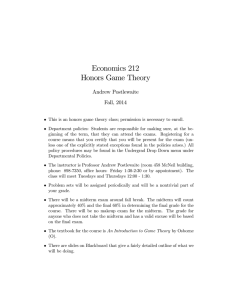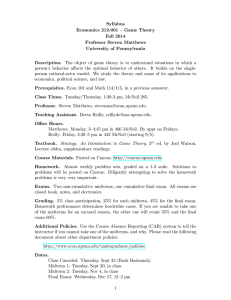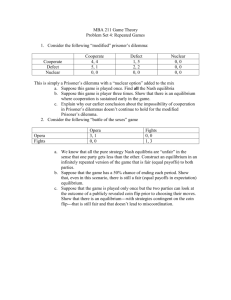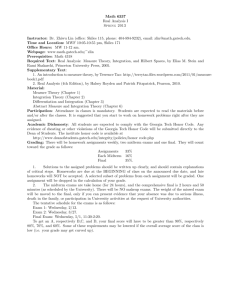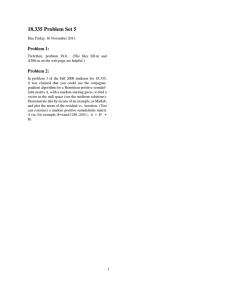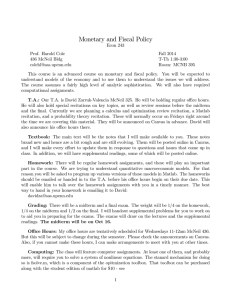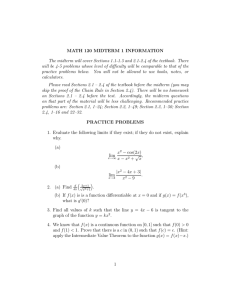Economics 212 Honors Game Theory Andrew Postlewaite Fall, 2013
advertisement
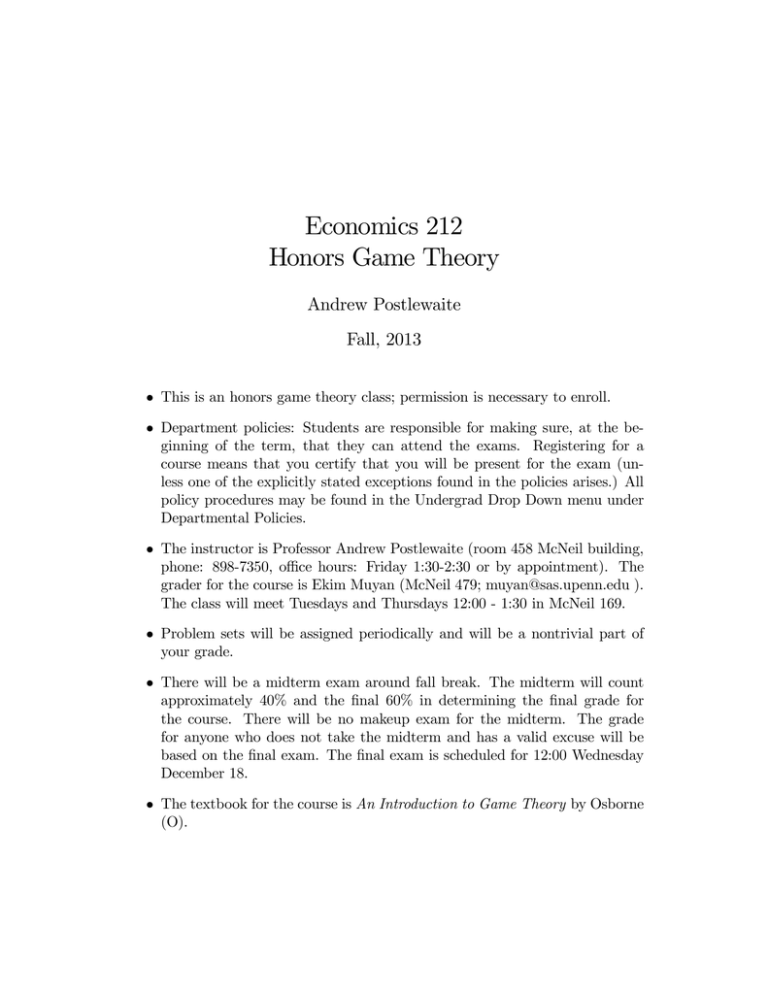
Economics 212 Honors Game Theory Andrew Postlewaite Fall, 2013 This is an honors game theory class; permission is necessary to enroll. Department policies: Students are responsible for making sure, at the beginning of the term, that they can attend the exams. Registering for a course means that you certify that you will be present for the exam (unless one of the explicitly stated exceptions found in the policies arises.) All policy procedures may be found in the Undergrad Drop Down menu under Departmental Policies. The instructor is Professor Andrew Postlewaite (room 458 McNeil building, phone: 898-7350, o¢ ce hours: Friday 1:30-2:30 or by appointment). The grader for the course is Ekim Muyan (McNeil 479; muyan@sas.upenn.edu ). The class will meet Tuesdays and Thursdays 12:00 - 1:30 in McNeil 169. Problem sets will be assigned periodically and will be a nontrivial part of your grade. There will be a midterm exam around fall break. The midterm will count approximately 40% and the …nal 60% in determining the …nal grade for the course. There will be no makeup exam for the midterm. The grade for anyone who does not take the midterm and has a valid excuse will be based on the …nal exam. The …nal exam is scheduled for 12:00 Wednesday December 18. The textbook for the course is An Introduction to Game Theory by Osborne (O). The coverage of game theory is pretty standard and there are many other textbooks that you can look at for additional detail. The lectures follow the treatment of the topics in textbook fairly closely. Below is a list of the topics and order in which we will treat them. There will be deviations from this, but hopefully it will be helpful. Rational Choice (O) 1.2 Games with Perfect Information (O) Chapter 2 Ex 14.1, 16.1, 18.2, 19.1, 20.2, 33.1, 39.1 More on Nash Equilibria (O) Sections 3.1 - 3.4 Mixed Strategy Equilibria (O) Section 4.1 - 4.3.3 Ex 114.4, 143.1 Extensive Games with Perfect Information (O) Chapter 5 Ex 155.2, 176.3 More on Extensive Games with Perfect Information: Examples (O) Chapters 5, 6 6.1 Ultimatum game 6.2 Stackelberg (O) Chapter 7 Ex 207.1, 210.3 Section 7.3 Repeated Games (O) Chapter 14 14.2.1 Discounting 14.3 Repeated games 14.4 Finitely repeated Prisoner’s Dilemma 14.5 - 7 In…nitely repeated Prisoner’s Dilemma Ex 429.1 14.8 "Folk Theorem" Ex 433.1 14.9 One-shot deviation principle 2 14.10, 11 Subgame perfect equilibria in in…nitely repeated Prisoner’s Dilemma Bargaining (O) Chapter 16 16.1,2 Extensive form for bargaining Ex’s 468.1, 473.1, 479.1 16.3 Axiomatic bargaining Ex 489.1 Games with Imperfect Information (O) Chapter 9 9.1 Introduction to imperfect information Ex 273.1, 276.1 9.2 Bayesian games Ex 282.1 9.3 Examples of Bayesian games 9.4 Cournot with imperfect information 9.6 Auctions Ex 299.1(G) Chapter 3 Dynamic Games with Imperfect Information (G) Chapter 3 (O) Chapter 10 10.1-3 Introduction Ex 314.2, 315.1, 319.1, 322.1 10.4 Beliefs and sequential equilibrium Ex’s 327.2-4, 330.1, 331.1 10.5 Signalling games 10.7 Education as a signal 10.8 Information transmission 10.9 Agenda Control Cooperative Games (O) Chapter 8 3
